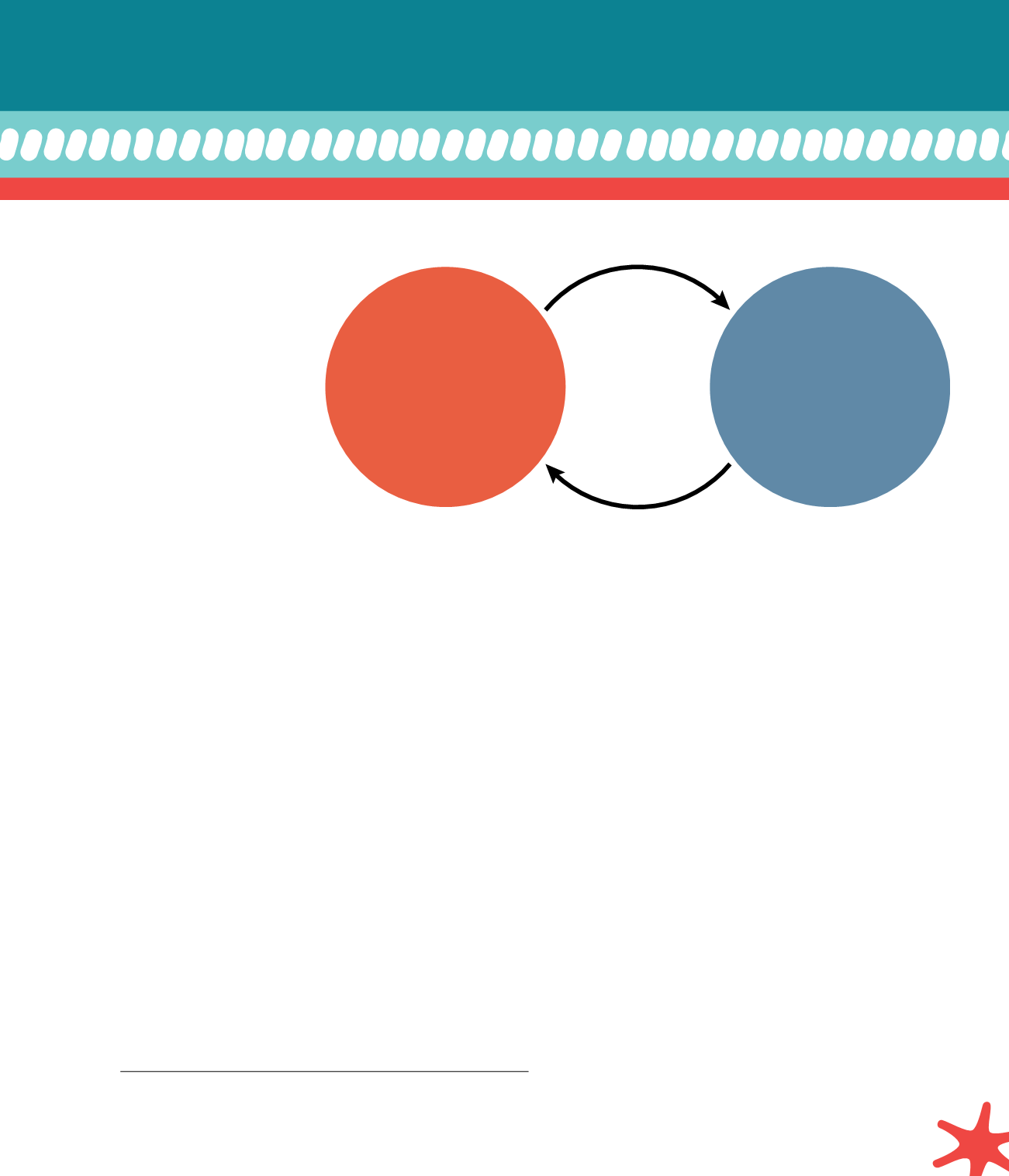

47
.
Intensification of agriculture in
upstream areas may negatively
affect the health of coral reefs
through nutrient loads, for
example, with potential
effects
to
livelihoods
derived from fisheries or
coastal tourism. Therefore,
it is helpful to identify
how national development
plans and objectives depend
on, and impact, ecosystem
services, and how far development
objectives might be conflicting as they
relate to natural assets. A TEEB Country Study
22
can inform
policy-makers about ecosystem services hotpots relevant
to national development plans and objectives, and guide
investment in their protection or restoration. The identification
of ecosystems services’ beneficiaries, particularly those local
coastal communities with limited economic options, can
increase the long-term robustness of development plans.
Furthermore, ecosystem services assessments can be
integrated into Strategic Environmental Assessments and
Environmental Impact Assessments, to better understand
the potential consequences of sectorial programmes and
projects, as they might jeopardise other activities towards
development objectives; and the negative impacts on
ecosystems and their ability to provide fundamental services,
as well as social and economic opportunities.
Marine Spatial Planning (MSP) is a public process of analysing
and allocating the spatial and temporal distribution of human
activities in marine areas to achieve ecological, economic and
social objectives that usually have been specified through a
political process.
23
As ecosystem services and their use are
spatial by their very nature, MSP processes can incorporate,
and be strengthened by, marine and coastal ecosystem
service information.
22
http://www.teebweb.org/areas-of-work/teeb-country-studies/23
http://www.unesco-ioc-marinesp.be/marine_spatial_planning_mspIn addition to bringing together conservation and development
objectives, the ecosystem services perspective has the
potential to create a link between human activities as they
benefit from, or impact on, marine and coastal ecosystems.
As such, marine and coastal ecosystem services can support
the integration of sectorial policy processes and governance
frameworks, the segregation of which can impede effective,
goal-oriented management. An arrangement that accounts
for these relationships and is able to effectively guide the
coordination and alignment of development goals, objectives
and related governance and management mechanisms
in the marine and coastal environment will help policy-
makers ensure the benefits from healthy marine and coastal
ecosystems can support sustainable development.
Ecosystem Services support the SDGs
o
f
e
c
o
s
y
s
t
e
m
s
e
ff
e
c
t
i
v
e
m
a
n
a
g
e
m
e
n
t
C
o
l
l
e
c
t
i
v
e
a
c
t
i
o
n
&
S
o
c
i
a
l
i
n
t
e
r
a
c
t
i
o
n
s
e
n
a
b
l
e
d
b
y
e
c
o
s
y
s
t
e
m
s
Natural
Capital
Generates flows of
supporting, provisioning,
regulating, and cultural
ecosystem services
Social
Capital
Trust, Reciprocity, Exchanges,
Common Rules, Norms,
and Sanctions
Embedded in Networks
of Relationships


















